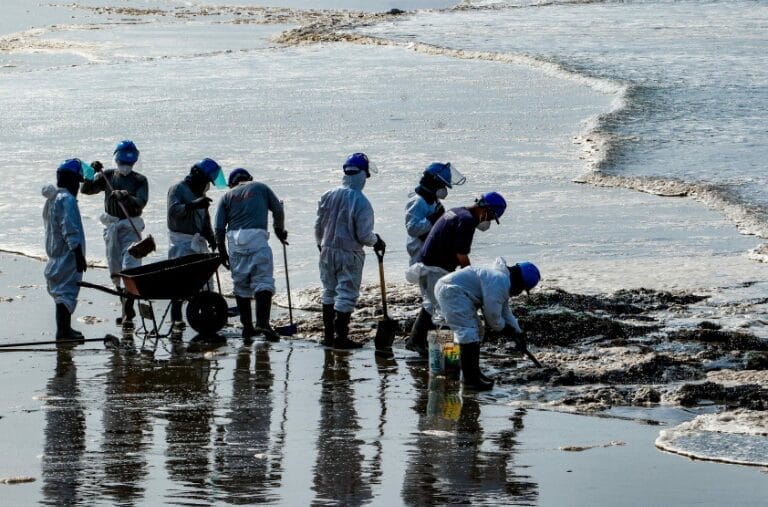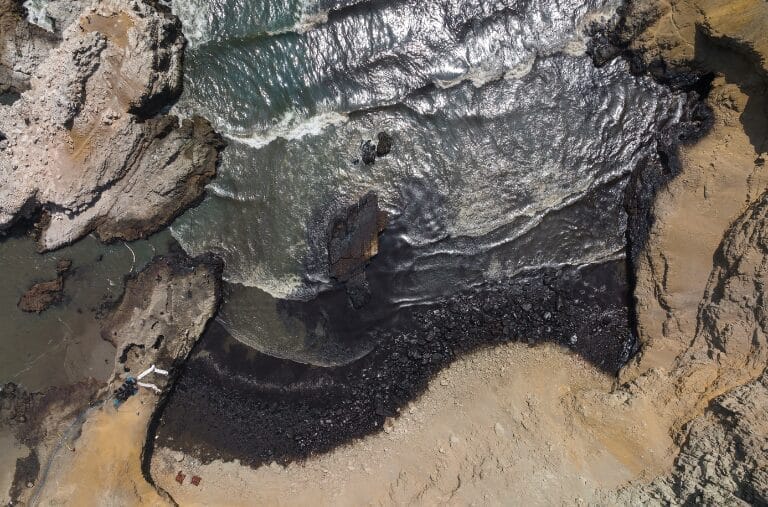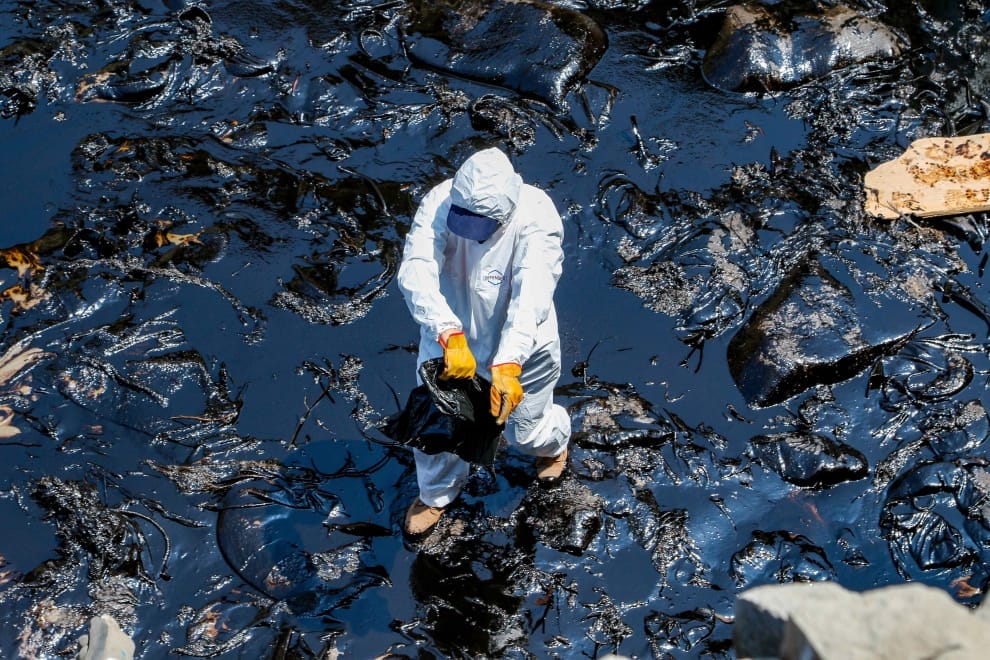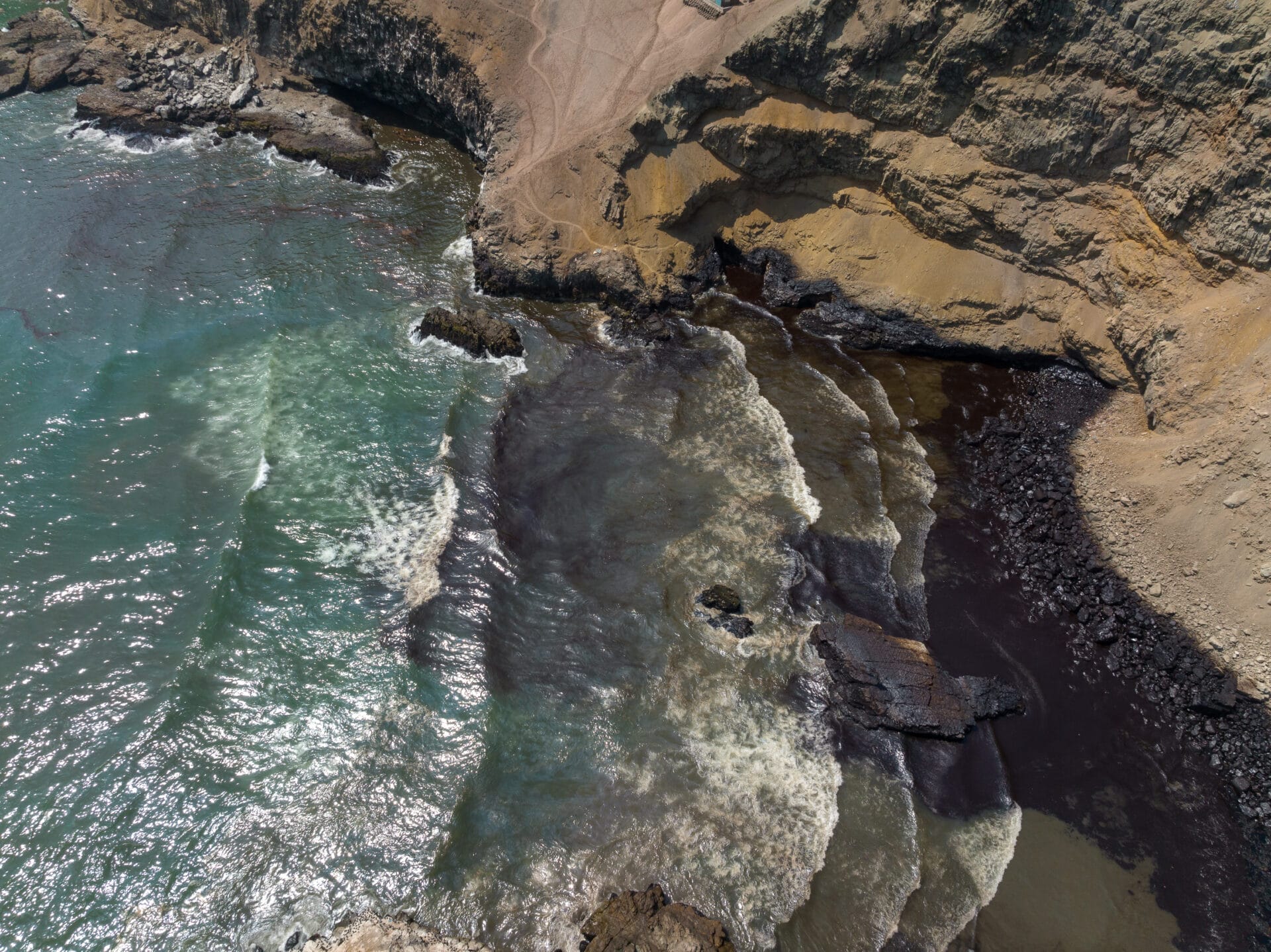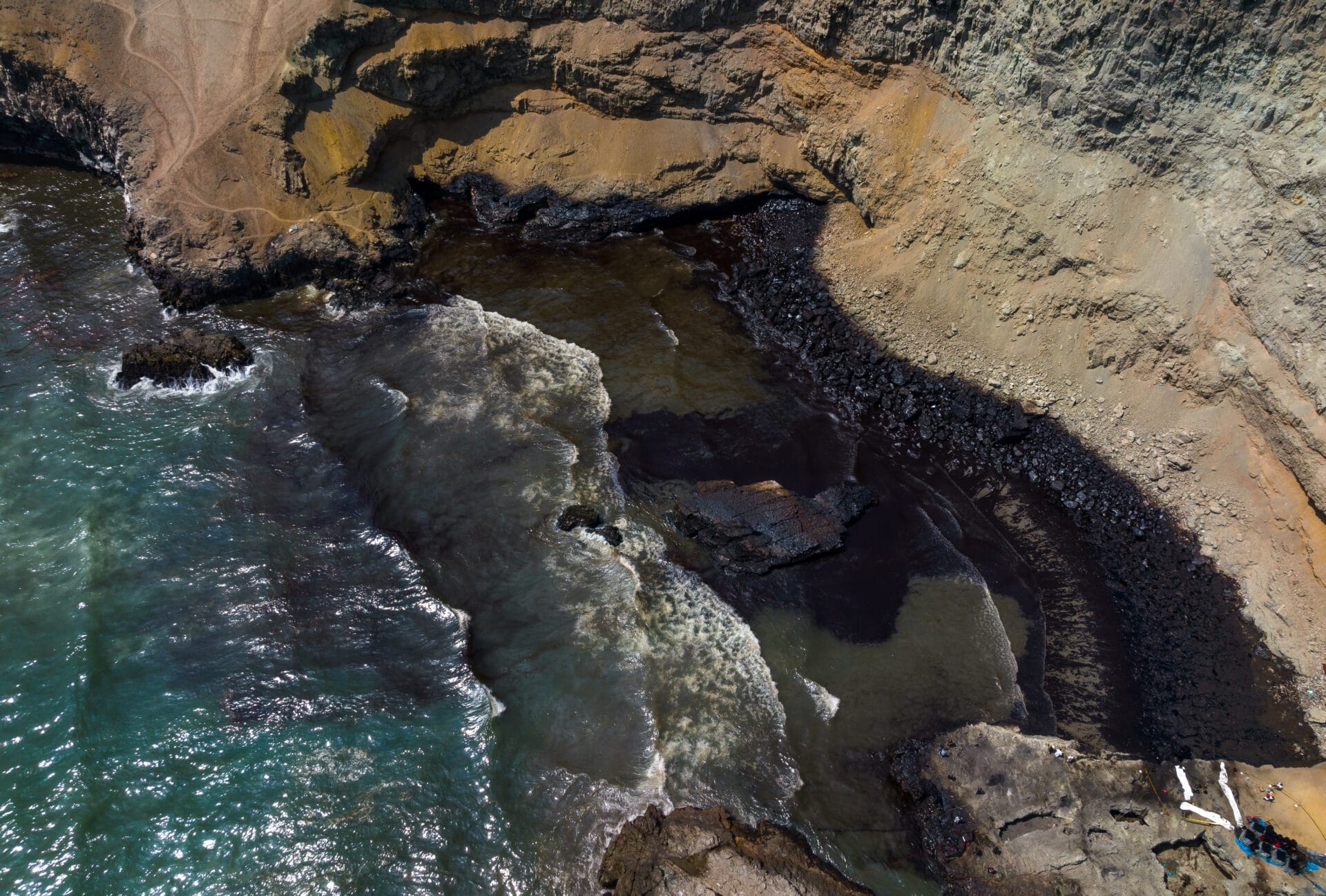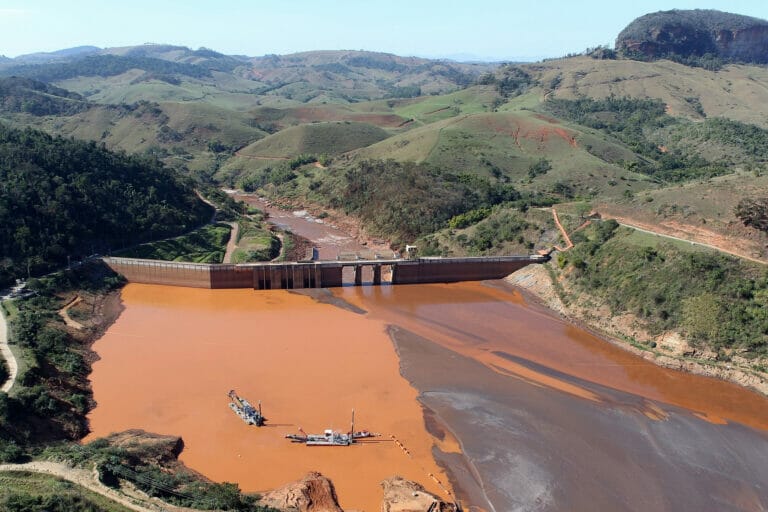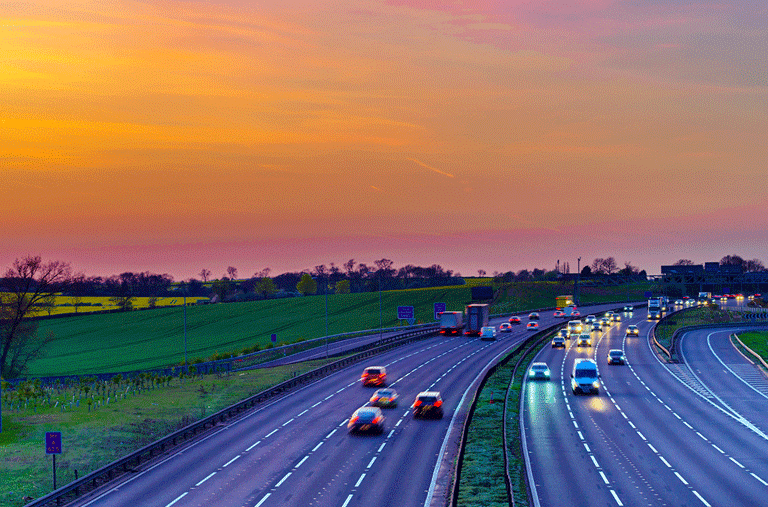On 15 January 2022, 12,000 barrels of oil spilled during the offloading of a tanker at Repsol’s La Pampilla refinery, just north of Peru’s capital, Lima.
The spill has been described as the worst ecological disaster to hit the country in recent history, causing significant economic and environmental damage. It devastated marine life, destroyed livelihoods, and severely impacted local communities.
The Peruvian government was forced to close several beaches along the North coast for the remainder of the year. While some were reopened in 2023, environmental reports confirm that some of the affected areas remain contaminated and unsuitable for human activities. The damage continues, and most victims have yet to receive fair compensation.
Victims of the oil spill
Victims include fishermen, food vendors, restaurant owners, and other local residents who are still unable to return to their normal activities due to the lasting impact of the spill. The number of victims participating in the claim now is over 50,000 victims.
The Claim Dutch Courts
The case is brought by Stichting Environment and Fundamental Rights (SEFR), a Dutch non-profit foundation representing the victims. SEFR is supported by a powerful legal alliance between Lemstra Van der Korst (LVDK) in the Netherlands and Pogust Goodhead, working together to hold Repsol accountable.
The legal team is led by partners Tom Goodhead, and Leila Mezoughi, with key associates Jessica Pineda and Laura Arboleda, and Erin Cronjé supporting the case.
The case is being brought before the Dutch courts against:
- Refinería La Pampilla, S.A.A., incorporated under Peruvian law
- Repsol Perú B.V., incorporated under Dutch law
- Repsol S.A., incorporated under Spanish law
Historic Hearing in The Hague – First Step Toward Accountability
On 9 April 2025, the District Court of The Hague held a landmark hearing to decide whether it has jurisdiction to hear claims against Repsol Netherlands (Repsol NL).
Repsol’s legal team argued that most victims had already been compensated. However, this is far from the reality on the ground. Victims remain without fair compensation, and communities continue to suffer the long-term effects of the disaster. Where payments have been made, they were often issued under pressure and represent only a fraction of the true damages owed.
SEFR’s lawyers presented strong evidence showing:
- Repsol NL was — and remains — directly involved in operations at the La Pampilla refinery.
- Repsol NL exercised operational control and either knew or should have known about the conditions that led to the oil spill.
- Repsol NL played a role in minimising the perceived scale of the spill and avoiding accountability.
This hearing marks a significant milestone in the effort to hold multinational corporations accountable for environmental damage. The court’s decision on jurisdiction is expected within six weeks. If the court confirms jurisdiction, the liability hearing will take place in 2026.
“This is Peru’s worst environmental disaster in a long time, and we will ensure the victims have their voices heard. We are going to show the world what Repsol has done in Peru.” – Tom Goodhead, Global Managing Partner and CEO
Stay tuned for further updates on this landmark case.


